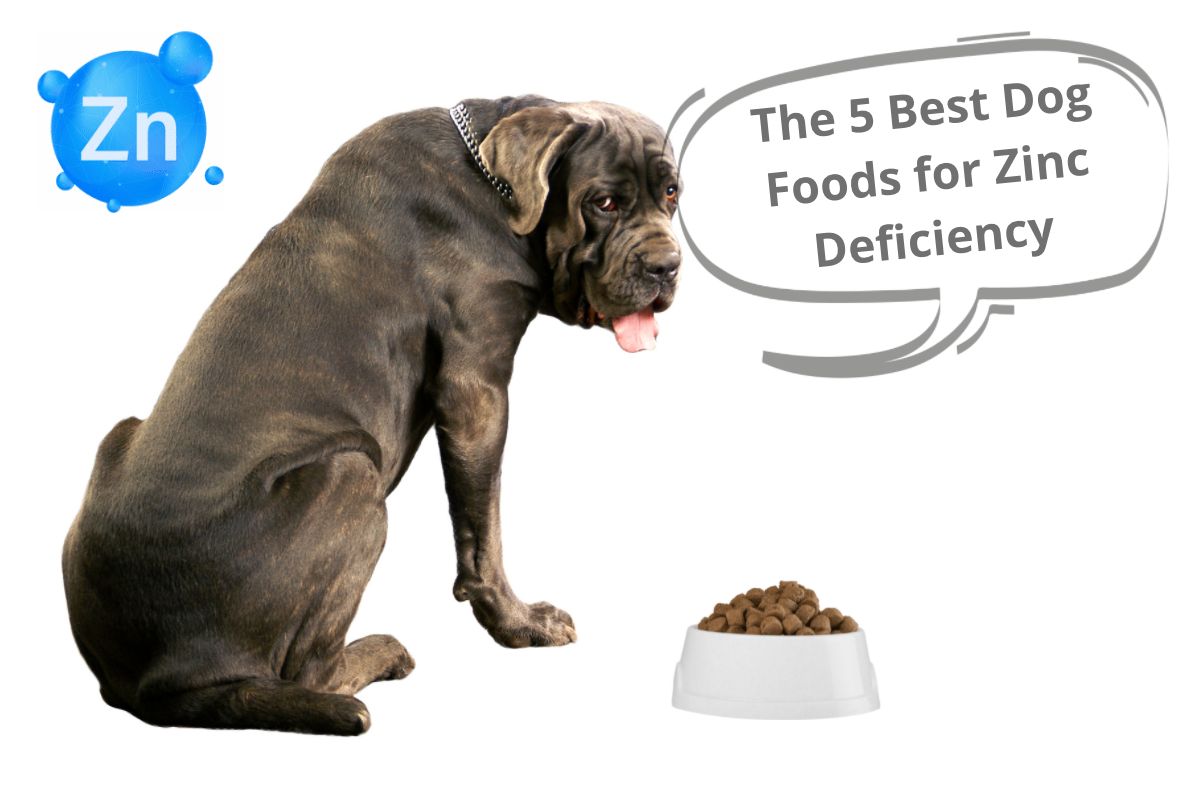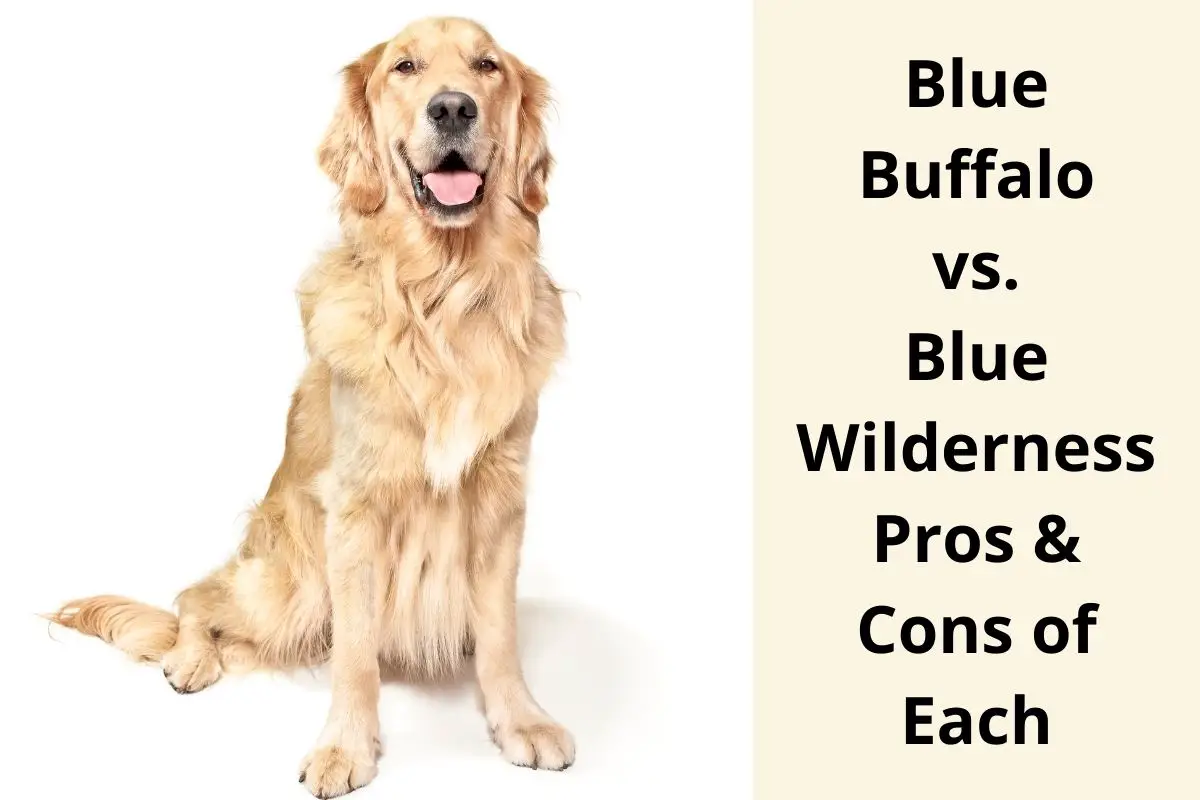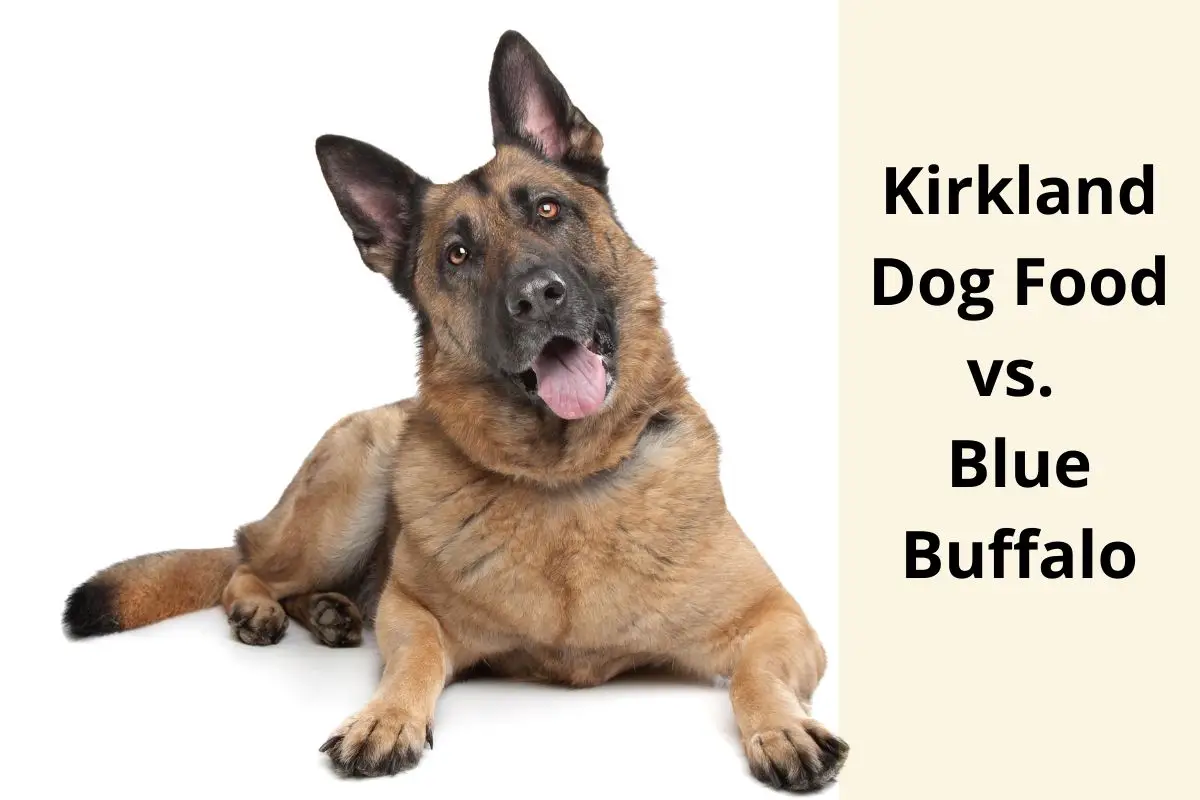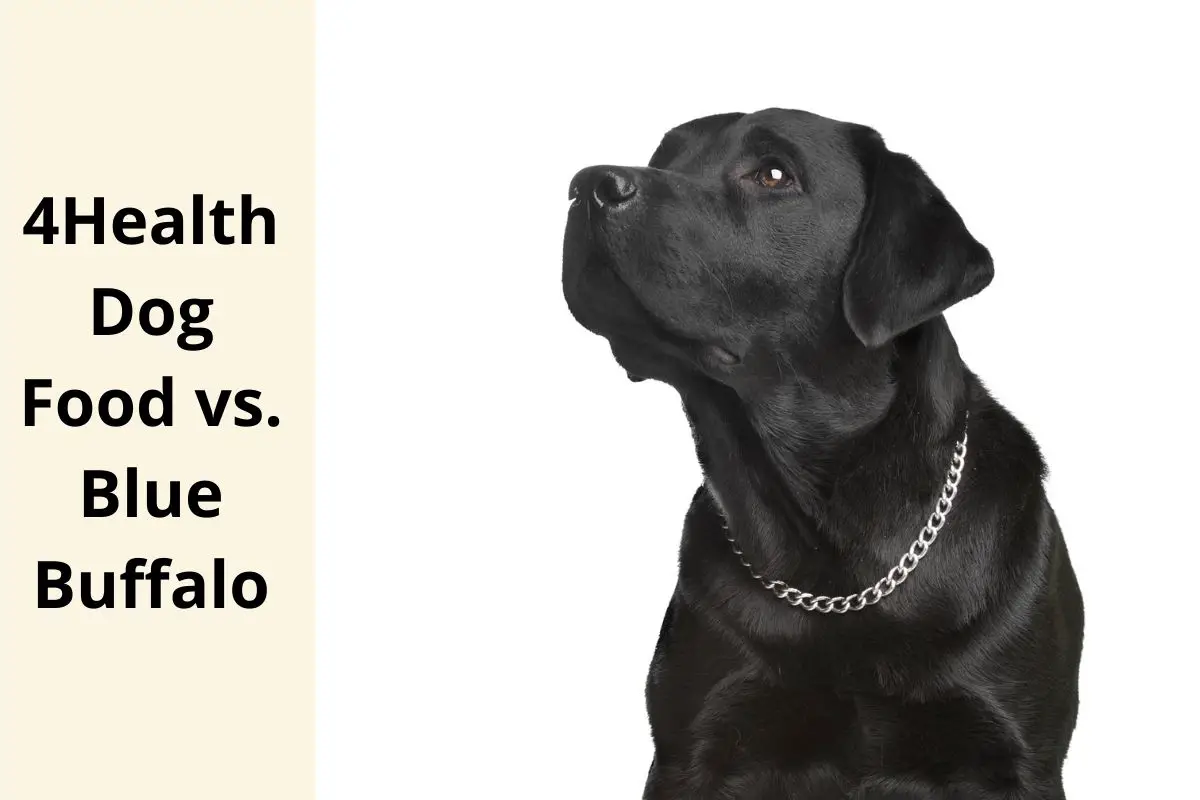This post contains affiliate links.
Zinc is the second most important trace mineral for dogs. A lack of zinc in your dog’s diet can lead to skin problems, organ problems, or seizures. It’s vital to ensure that your dog has an adequate amount of zinc in their diet, which they can get from the right kind of food.
The best commercial dog food high in zinc is Nulo Limited Ingredient Grain-Free Dry Food. This kibble contains salmon and zinc methionine, a highly absorbable form of zinc. It even works for breeds like the Siberian Husky or Alaskan Malamute, which require more zinc than other dogs.
In the rest of this article, I’ll discuss the best commercial dog foods high in zinc, the advantages and disadvantages of commercial dog food versus raw food, the importance of a zinc-rich diet, and common symptoms of zinc deficiency in a dog.
Table of Contents
Top 5 Dog Foods High in Zinc
Below is an overview of some commercial dog foods high in zinc. I chose these based on the amount and kind of zinc they have, customer reviews, and veterinary advice.
| Name | Nulo Limited Ingredient Grain-Free Dry Food | Purina ONE Smartblend Natural Puppy Food | Purina Pro Plan Dog Food for Sensitive Skin and Stomach | Blue Buffalo Wilderness High Protein Large Breed Adult | Taste of the Wild Roasted Bison and Venison Dry Food |
| Zinc Type | Zinc Methionine, Zinc Sulfate | Zinc Sulfate | Zinc Sulfate | Zinc Amino Acid Chelate, Zinc Sulfate | Zinc Proteinate, Zinc Sulfate |
| Zinc Content | N/A | 0.005 oz/220 lbs (150 mg/kg) | N/A | N/A | 0.005 oz/220 lbs (150 mg/kg) |
Best Overall: Nulo Limited Ingredient Grain-Free Dry Food
The Nulo Limited Ingredient Grain-Free Dry Food is the best commercial dog food for zinc deficiency. This salmon-based dry food contains high levels of zinc methionine and zinc sulfate.
Pros
- The smaller ingredient list allows the dog to digest everything properly without all the extra ingredients interacting
- Contains zinc methionine, a highly bioavailable (absorbable) form of zinc, and zinc sulfate
- The main ingredient is salmon, which includes fish oils containing a high amount of zinc
- It’s a grain-free dry food, which is essential for zinc deficiency as grains can interfere with zinc absorption
Cons
- Relatively expensive
- May not be suitable for smaller breeds
- Some owners have reported that their dogs did not want to eat the food on their first try
Best Budget Buy: Purina Pro Plan Dog Food for Sensitive Skin and Stomach
The Purina Pro Plan Food for Sensitive Skin and Stomach is the best in terms of cost-effectiveness. This nutritious dog food is tasty, healthy, and more affordable than the other options on this list.
Pros
- Easier on the wallet than the other products on this list
- One of the main ingredients is salmon, which is high in fish oils that contain zinc
- Specially formulated for sensitive skin and digestive systems
Cons
- Contains only zinc sulfate, which isn’t as bioavailable as other types of zinc
- You may need to give it to your pet in small portions at first, as they may not like it
- A few owners have reported seeing bugs in the bag
Best for Puppies: Purina ONE Smartblend Natural Puppy Food
For younger dogs, the best option is the Purina ONE Smartblend Natural Puppy Food. This particular dry food is made for large breed puppies, who — like their adult counterparts — require a larger dose of zinc.
Pros
- Contains 0.005 oz/220 lbs (150 mg/kg) of zinc
- Has a high amount of antioxidants
- Specially formulated for puppies
- High in protein, which is good for growing dogs
- Uses chicken as the main ingredient
Cons
- Only contains zinc sulfate, which isn’t as bioavailable as other types of zinc
- Contains wheat, corn, and other grain meal, which might affect the absorption of zinc
- You may need to give it to your dog in small portions first to see if they like it
Best for Large/Giant Breeds: Blue Buffalo Wilderness High Protein Adult Dry Food
The Blue Buffalo Wilderness High Protein Adult Dry Food is the best zinc source for big dog breeds. Blue Buffalo is well-known for its high-quality products, and this one’s no different.
Pros
- Contains zinc amino acid chelate as well as zinc sulfate
- A well-known brand for high-quality dog food
- Comes in salmon and chicken without grain flavors, both of which are good for zinc deficiency
- Perfect for naturally zinc-deficient breeds like Siberian Huskies or Alaskan Malamutes
- High in protein, at approximately 32%-34% protein
Cons
- One of the more expensive options on this list
- You may need to give this to your dog in small doses to make sure they’re not sensitive to it
Best Natural Ingredients: Taste of the Wild Roasted Bison and Venison Dry Food
The dog food containing the most natural ingredients is the Taste of the Wild Roasted Bison and Venison Dry Food. This dry food uses bison and venison — two zinc-rich, dog-friendly meat choices. The incredible flavor makes it a favorite among dogs.
Pros
- Contains zinc proteinate and zinc sulfate
- Has a high zinc level of 0.005 oz/220 lbs (150 mg/kg)
- Uses bison meat, which is high in bioavailable zinc
- High in protein
- Grain-free, which helps in zinc absorption
- A very affordable option
Cons
- Not specifically designed for large breeds
- A 2019 FDA report linked this brand to chronic heart disease in dogs
- Your dog may be sensitive to this particular food
Commercial Dog Food Versus Raw Food for Zinc Deficiency
Most dog owners stick to commercial dog food for their dogs or go with a raw, natural diet. There are advantages and disadvantages to both. Generally, most natural sources of bioavailable zinc contain higher zinc levels in their raw form.
Below is a list of some raw foods rich in zinc:
- Beef
- Pork
- Chicken
- Salmon
- Oyster
- Chickpeas
- Peanuts
- Lamb
- Bison
- Turkey
- Kale
- Seaweed
- Spinach
As noted, the abovementioned foods contain the highest levels of bioavailable zinc in their raw forms. Most commercial dog foods will contain a processed form of these food sources.
In general, raw diets are highly recommended for dogs suffering from zinc deficiency. However, you can also use commercial dog food to treat zinc deficiency. In any case, you shouldn’t mix a raw food diet and dry food, as that could cause stomach irritation.
Importance of Zinc in a Dog’s Diet
As mentioned, zinc is one of the most important trace minerals in a dog’s diet, second only to iron. However, because dogs cannot naturally store zinc, you need to regularly feed them a zinc-rich diet to keep their levels high. Here are some of the benefits of zinc for your dog.
Improves Skin Health
Zinc is an important part of mast cell function. Mast cells are found mostly in the skin and the mucosal lining of the lungs and gut. These are vital to adaptive immunity, which helps temper allergic reactions and inflammation. Without an adequate amount of zinc, the body becomes more prone to allergies, inflammation, skin disease, itchiness, and skin infections.
Functions As Antioxidant
When the body creates new cells, it also produces something known as free radicals, a type of “rogue” cell structure closely related to the development of cancer, cardiovascular diseases, and other organ problems. The creation of these free radicals is tempered by antioxidants, which prevent free radicals from forming and damaging the body.
Since zinc also works as an antioxidant, it not only helps prevent the formation of cancerous cells but also improves overall organ health.
Boosts Brain Function
Lack of zinc has also been linked to a malfunctioning central nervous system, the development of unusual behaviors, and an increased likelihood of neurological disease. As a result (particularly in small puppies), an adequate zinc intake is necessary for proper neurological and physiological development.
Common neurological signs of zinc deficiency are:
- Sudden behavioral change
- Signs of depression
- Increased anxiety
- Increased aggression
- Interference in the sense of smell and taste
- Lethargy
It’s important to note that aggression in itself is not necessarily a sign of zinc deficiency. However, if you suspect that your dog is behaving badly due to zinc deficiency, you should talk to a vet.
Improves Immunity
The cells that form the body’s immune system require a regular supply of zinc to function properly. Zinc helps the body by stabilizing cell membranes, so a lack of zinc could lead to a malfunctioning immune system. This could result in either an under-functioning immune system or a hyper-reactive immune system.
An under-functioning immune system is too weak to fight off any infections or diseases. On the other hand, a hyper-reactive immune system would treat any foreign substance as a threat. Either way, a faulty immune system would cause your dog to become ill.
Other Zinc Benefits
Apart from the above-mentioned benefits of adequate zinc intake, there are also benefits to eye health, hormonal balance, thyroid function, etc. A common problem faced by dogs is a loss of fur due to hypothyroidism — a condition that occurs when the thyroid gland doesn’t produce enough hormones as a result of zinc deficiency.
Symptoms of Zinc Deficiency in Dogs
The main issue with diagnosing a dog with zinc deficiency is that many early symptoms are similar to other more common problems. This causes many dog owners to mistake the symptoms of zinc deficiency as symptoms of milder issues.
The following is the usual progression of symptoms of zinc deficiency in dogs. Remember that not all dogs manifest the same list of symptoms or follow the same order. Some dogs may skip certain symptoms altogether. To get a proper diagnosis of zinc deficiency, ask your vet for a skin biopsy.
Persistent Digestive Issues or Lack of Appetite
A zinc deficiency could lead to digestive issues like diarrhea, vomiting, or a persistent lack of appetite. These symptoms are harder to link to zinc deficiency because they’re often considered behavioral issues or the signs of “picky eating.”
Another issue is that these symptoms appear in almost all ailments that plague dogs. So if these are the only symptoms present, don’t immediately jump to conclusions and attempt to diagnose the problem yourself. If the problem persists beyond a few days, you should consult your vet and conduct tests to determine the cause.
Zinc Responsive Dermatosis
Zinc responsive dermatosis is a skin condition where the skin develops dry, crusty lesions around the mouth, eyes, groin, and paws. These are often mistaken for allergic reactions or hot spots, but a zinc deficiency might be the cause.
Sometimes, these lesions can disappear after applying a zinc-rich topical cream, only to reappear when you stop applying the cream. The only long-term solution is to feed your dog a diet of dog foods high in zinc.
Malfunctioning Immune System
As noted earlier, zinc is vital to the proper functioning of your dog’s immune system. Without it, your dog’s immune system will under- or over-function — both of which will harm your beloved pet in different ways. The best way to tell if this is the case with your dog is to consult a veterinarian.
If your dog has an under-functioning immune system, he’ll frequently fall ill. This is because the immune system is too weak to fight against any infections. If your dog is getting multiple infections fairly regularly, it may be a sign of an underperforming immune system.
A hyper-reactive immune system is the exact opposite. It treats any foreign substance as a threat and attempts to fight against this perceived threat. As a result, your dog may get fevers for seemingly no reason.
Organ Failure or Seizures
Organ failure or seizures are usually the most serious symptoms of a zinc deficiency. They usually manifest only after the previously mentioned ones and only when the dog is dangerously low on zinc. To prevent your dog from reaching this stage, ensure a steady supply of zinc in your dog’s diet and take him for regular checkups at the vet.
Final Thoughts
Zinc plays a part in creating healthy skin, organs, hormonal balance, etc. Your dog needs regular amounts of zinc through his diet, as the body cannot store it. The top five dog foods high in zinc are listed below.
- Best Overall: Nulo Limited Ingredient Grain-Free Dry Food
- Best Budget Buy: Purina Pro Plan Dog Food for Sensitive Skin and Stomach
- Best for Puppies: Purina ONE Smartblend Natural Puppy Food
- Best for Large or Giant Breeds: Blue Buffalo Wilderness High Protein Large Breed Adult Dry Food
- Best Natural Ingredients: Taste of the Wild Roasted Bison and Venison Dry Food
Mrdogfood.com is a participant in the Amazon Services LLC Associates Program, an affiliate advertising program designed to provide a means for sites to earn advertising fees by advertising and linking to Amazon.com. We also participate in other affiliate programs which compensate us for referring traffic.









